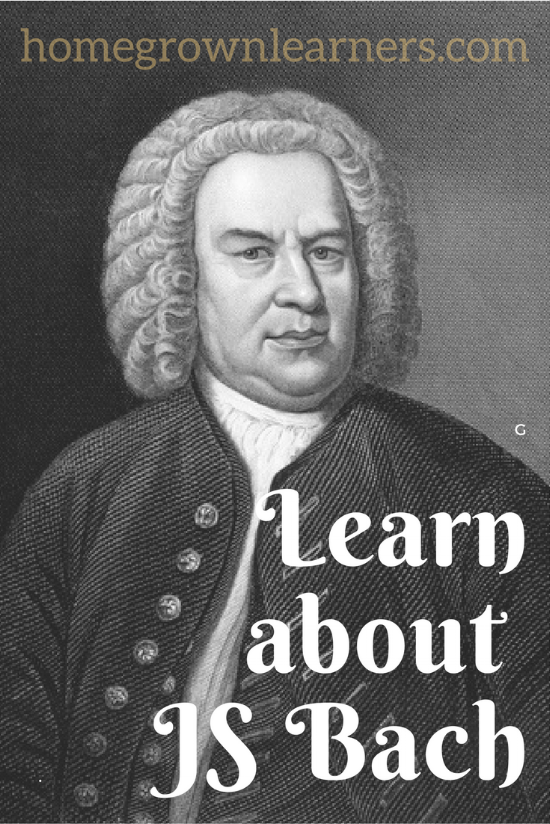Bach is my favorite composer. His music is the essence of beauty, organization, and spirituality.
A composer study of Bach will enrich your child in many ways. Not only will they learn about the man and his music, they will learn about the Baroque Era, geography, and much more.
THIS is why we should study composers - because they give us a window into history. Music reflects fears, dreams, and values. Music is a window into the soul of a time period.
And of course, giving our children the gift of beautiful music is just that -- a GIFT -- one that will keep giving for the rest of our children's lives.
About Johann Sebastian Bach
"Bach was born in Eisenach in 1685"
(This is a fun rhyme your children can memorize.)
When I begin a composer study with my children I always use an engaging biography as our spine. I am partial to the Opal Wheeler Composer biographies. Sebastian Bach, the Boy From Thuringia, is such a beautiful story.
Of course there are other Bach biographies -- but I love this one because young children can relate to the composer as a child themselves.
Perfect.
The Music of Johann Sebastian Bach
Bach wrote over 1,000 compositions. In 1950 a special cataloging system was created for Bach's works, the BWV System. (This essentially, when translated, means Bach Works Catalog.) The works are grouped by theme, not by date composed, so a low BWV number doesn't necessarily mean it was written early in Bach's career.
Bach wrote music for chamber orchestra, harpsichord, pipe organ, and voice. He was prolific to say the least.
The best way to expose a child to any composer's music is to first IMMERSE them in the compositions, and then to teach them how to listen discriminately (more on that in a minute!).
I play the music in the car, while the children are working, basically everwhere. You will be amazed at the effect beautiful music has on children. Following are 5 of Bach's most famous works - play them for your children over an extended period of time.
Brandenburg Concertos
Sheep May Safely Graze
Toccata & Fugue in D Minor
Air on the G String
Ave Maria
JS Bach: Composer Spotlight
As part of my SQUILT Music Appreciation curriculum I have written a JS Bach composer study.
In this study your children will receive biographical information, and a detailed study of three pieces by Johann Sebastian Bach.
(You can see the table of contents here.)
This study does more than scratch the surface of the music of Bach, it allows our children to dig deeply, ANALYZE the music, and develop the habit of attention needed to listen for the many details in Bach's music.
Do you study composers in your homeschool?









